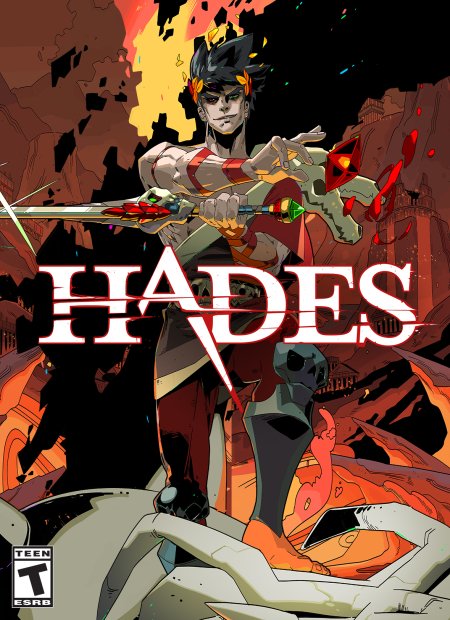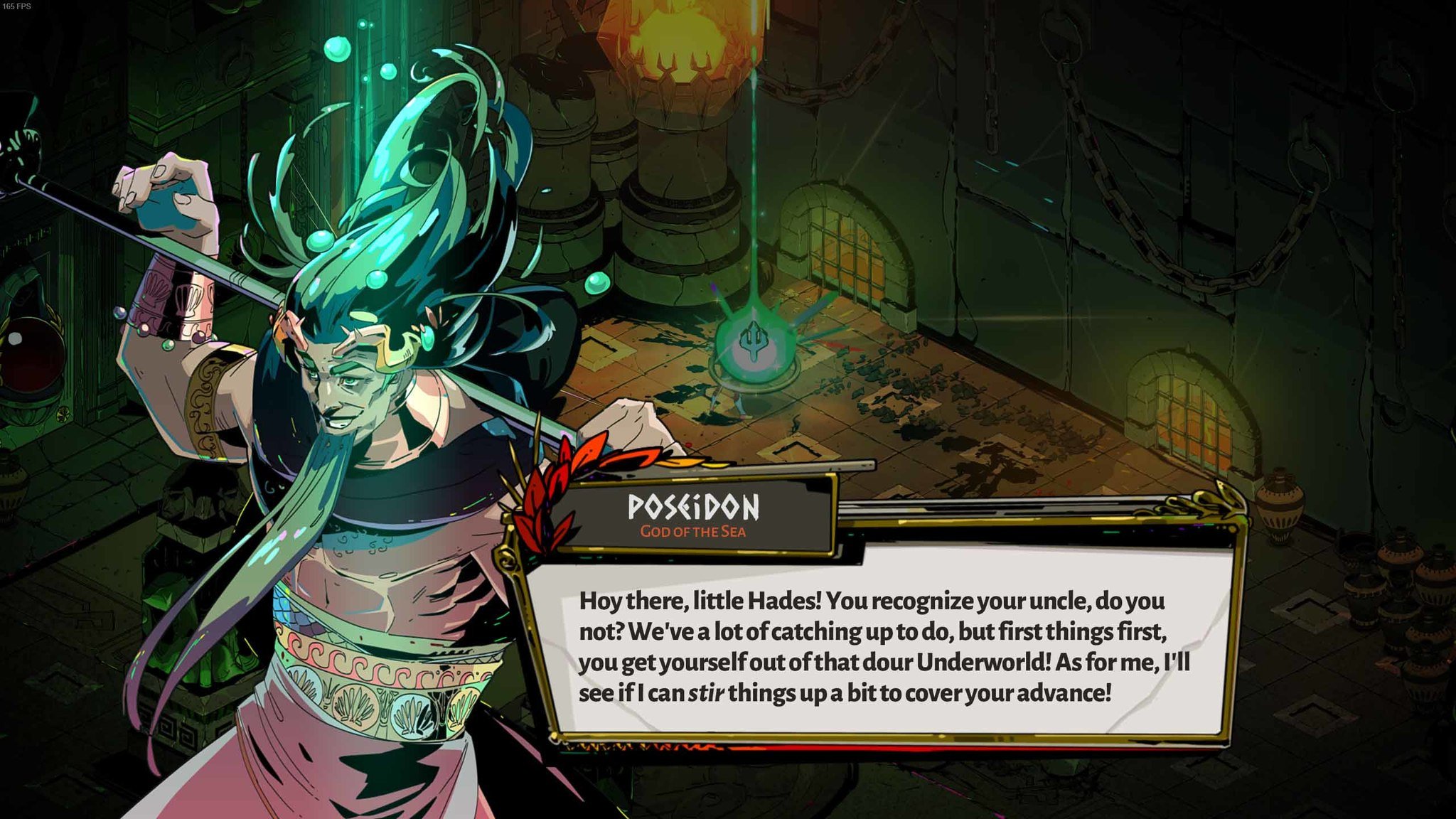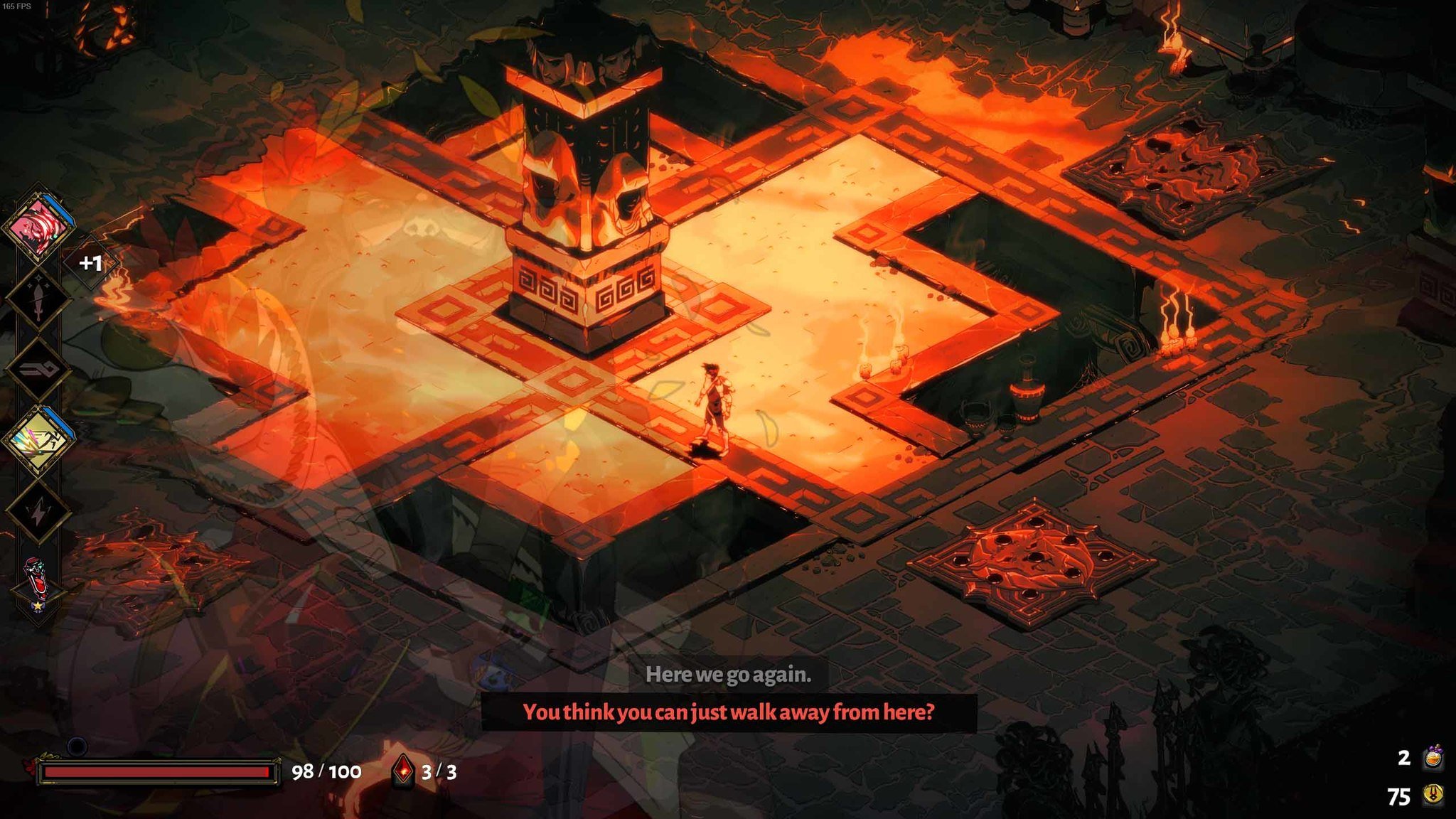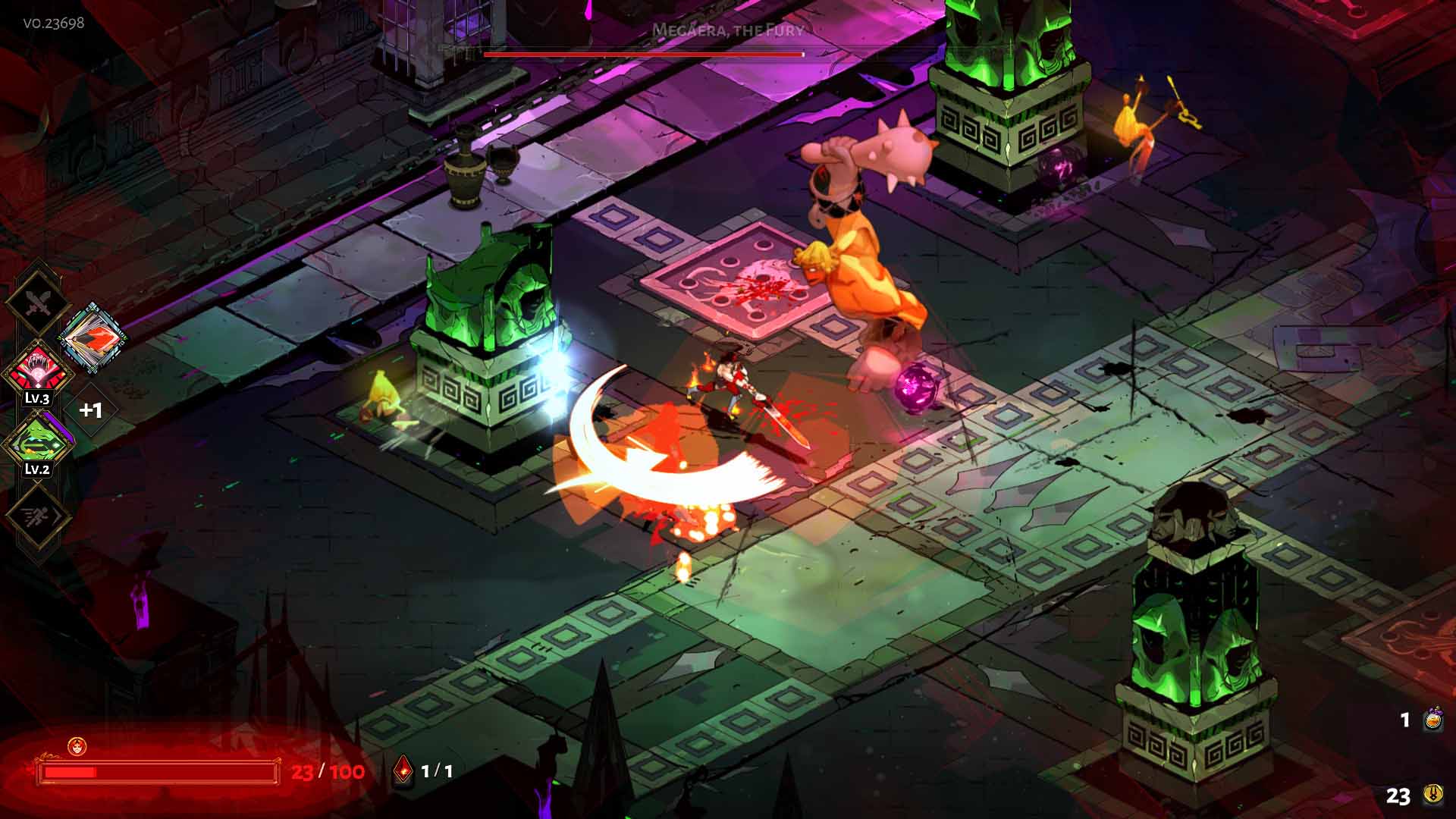
Indie developer Supergiant Games has made a name for itself over the last decade with beloved games like Bastion, Transistor, and Pyre. While the three games are still played to this day by many people, it seems like Supergiant's latest effort is a culmination of all it learned over the years. Hades, which got its 1.0 release September 17, had a strong Early Access period that consistently saw new content and mechanics added.
I played a significant amount of Hades while it was still a work in progress, taking a break right around the time Supergiant was gearing up for the official release. Chances are if you're a PC gamer you've already heard of Hades; it has an Overwhelmingly Positive rating on Steam with more than 100,000 player reviews and generally has more than 20,000 concurrent players according to Steam Charts. It's also one of our picks for best indie game.
So why is everyone flocking to Hades? Let's take a look at where it excels and why you should give it a shot if you haven't already been enjoying this hellish roguelike.

Bottom line: An epic soundtrack, top-tier voice acting, gorgeous artwork and locales, frenetic but balanced action, and an addictive roguelike progression system and surprisingly deep build system come together to make Hades the indie game you should be playing if you have a PC.
Pros
- Beautiful artwork and music
- Strong story and voice acting
- Addictive gameplay loop
- Plenty of endgame content
- $25 price tag
Cons
- Not available on Xbox or PlayStation
Hades is a tasty blend of roguelike and aRPG
I'm a sucker for roguelike games no matter the platform, spending a significant amount of time with titles like Enter the Gungeon, Dead Cells, Binding of Isaac, and Slay the Spire. What exactly is a roguelike game? It's one that's designed to have you die over and over, restarting at the very beginning each time until you finally defeat the final boss. A great roguelike will allow you to get just a bit further each playthrough, usually due to skill improvement and permanent unlocks through some form of in-game currency.
Most roguelikes have procedural level generation, most have a deep unlock system that remains even after death, and most have deeply varied gameplay (with pickups, equipment, and skills) that will make every run different from the last. Some also offer a storyline that's compelling enough to string you along through hundreds of restarts, but it's usually the raw gameplay that keeps players coming back.
I've also dedicated a good portion of the last 20 years of my life to playing Diablo II, one of the best aRPG dungeon-crawlers ever made. Hades feels a bit like an aRPG with its frantic isometric action, at least enough to keep me satisfied while we await Diablo IV's dungeon-crawling goodness. But where an aRPG goes incredibly deep with loot and crafting, Hades fills the hole with roguelike aspects.
Hades takes parts from a bunch of different genres and forges them into something special.
There are multiple weapons to unlock — you select one before attempting a run — including a bow and arrow, shield, spear, fists, and railgun. Keepsakes are unlocked by presenting gifts to the deities and character you meet during your travels. These keepsakes will either give you an immediate boost to some aspect of your character, or they will ensure you see a specific boon to start off your run. This makes it much easier to get a solid start to a specific build during a run. Yes, it is possible to design your character each time you run through, though of course the roguelike nature means there is some chance to what you'll get.
All the latest news, reviews, and guides for Windows and Xbox diehards.
Your Special, Cast, and Call abilities can all be overhauled with certain boons as well, which means one run you can be a Hangover-inducing party animal and the next you can be a Lightning-wielding Zeus fanatic. Plenty of times I've accidentally discovered a potent combination of boons, turning a throwaway run into a veritable push to leave the Underworld. It's a system that's much deeper than what's evident at first glance, and it makes players go for just one more run.
Hades has an actual storyline to discover

Some of my favorite roguelike games don't have much of a storyline to follow and lean heavily on addicting gameplay. Dead Cells, for example, has you play as a headless prisoner who must kill the High King. There are hints of story throughout, but that's about as far as it goes. Hades, on the other hand, has an actual storyline that is uncovered as you play the game.
You're Zagreus, son of Hades, and you're attempting to escape the Underworld with the help of some relatives. Why? Your dad is an ass and you're sick of missing out on all the fun your cousins, aunts, and uncles are having on Mount Olympus. Oh, you're also trying to figure out where you came from. That's just scraping the surface; the more runs you attempt, the more story you'll dig up. Perhaps most compelling is the endgame storyline, which continues branching out even after you've reached the "end." For a roguelike, that's a big deal.
Characters in the game remember you as you make your way to the surface over and over, commenting on your abilities and exploits. Your immortal state is no big deal to them, thanks to the magic of Greek mythology. The more you play, the more you begin to understand what's going on. Voice acting is superb here, as is the artwork. Each character has a definite personality, which really puts some icing on the cake.
Hades keeps things fresh

Keeping a roguelike game feeling fresh isn't necessarily easy. You are, after all, playing the same levels over and over again. But Hades employs some roguelike staples to keep things looking (mostly) new when you make another run. First and foremost, levels are procedurally generated. Each section has a theme and there are certainly blocks you'll begin to expect, but you're not going to be running through the exact same levels each time. With the contractor back at the house of Hades, you can add new areas to these sections as well.
Once an encounter (basically one room or level in Hades speak) is complete, you will have one or two paths to choose from based on reward and difficulty. You might also experience a Trove trial that has you kill enemies as fast as possible for a reward. Chaos gates also mix things up with timed debuffs that eventually wear off and give you a big bonus. All this, combined with the different enemies, skills, and weapons means you're going to have a different experience each time.
Hades is easy to play, difficult to master
Hades looks beautiful, and it handles just as well. I was a bit overwhelmed when I first saw gameplay, but you need not really worry about the insane pace of action. I don't know how Supergiant did it, but it's actually relatively easy to follow the action despite its frenetic pace. There are almost always a ton of effects going off on the screen, but you can still quickly get into a rhythm of dashing and attacking. And when you do hit that rhythm, you become a machine of death that is extremely satisfying.
Hades is easy to pick up for a quick game, but you'll soon find an hour has gone by.
I spent the first 15 runs or so madly mashing the dash button and spamming attack, but I've since slowed things down to great effect. Sure, you can have a lot of fun mashing every button, but if you really want to succeed you're going to need to practice timing. You're also going to need to experiment with different boons and skills to see what works well together and what suits your playstyle.
Hades is easy to pick up and start feeling right away like you're making a difference, and it's not going to grow stale after a few hours. And even if you aren't particularly skilled at the game (looking at myself), the myriad character upgrades available will eventually make you far more resilient and powerful, allowing you to go just a bit further each time.
Time to give Hades a shot
Hades is the best PC game I've played this year, and it's also available on Nintendo Switch. Considering it's priced at $25, this should be a staple of just about any gamer's library. It's just a shame it's not available on Xbox or PlayStation.
I know Cyberpunk 2077 is just around the corner, but Hades will remain near the top of my recently played list for the foreseeable future. If you're a fan of roguelikes, action combat games, Greek mythology, or Supergiant's flair for game design, you need to give this a try.

An epic soundtrack, top-tier voice acting, gorgeous artwork and locales, frenetic but balanced action, and an addictive roguelike progression system and surprisingly deep build system come together to make Hades the indie game you should be playing if you have a PC.

Cale Hunt brings to Windows Central more than nine years of experience writing about laptops, PCs, accessories, games, and beyond. If it runs Windows or in some way complements the hardware, there’s a good chance he knows about it, has written about it, or is already busy testing it.

